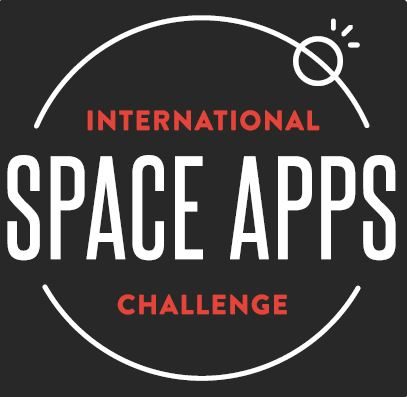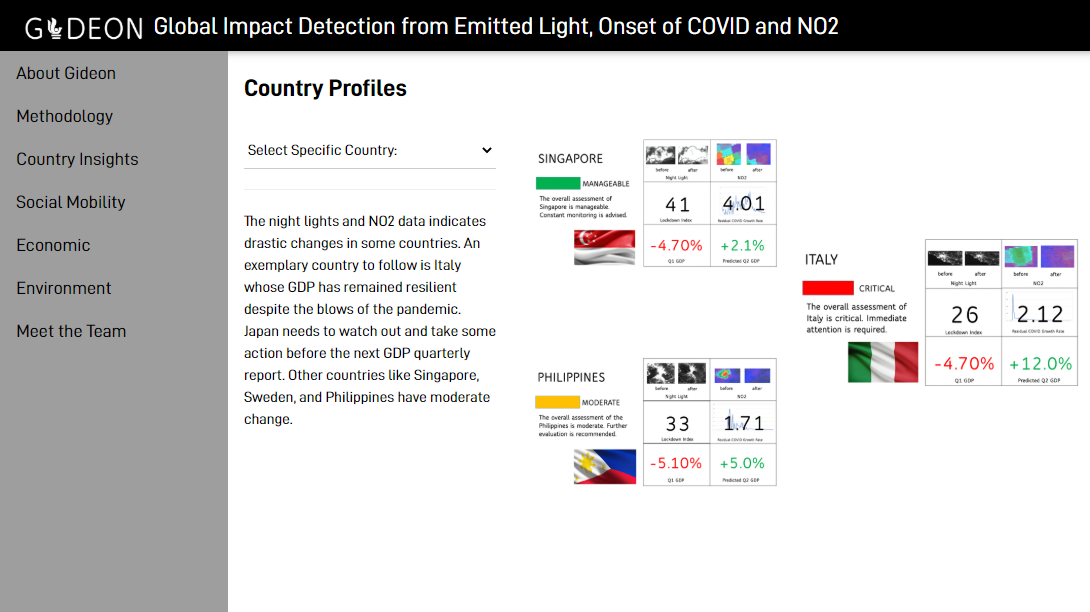SUMMARY
This is AI generated summarization, which may have errors. For context, always refer to the full article.

A Filipino team won the NASA Space Apps COVID-19 challenge, the US space agency announced last Tuesday, August 4.
Team CirroLytix’s G.I.D.E.O.N. (Global Impact Detection from Emitted Light, Onset of Covid-19, and Nitrogen Dioxide) took top honors in a pool of 1,400 submitted projects.
The project makes use of light data as captured by satellites, mobility data, economic data, and COVID-19 infection rates to forecast the outcome of lockdowns on a country’s economy and environmental health. The team proposes that their method can produce fast, accurate forecasting that can help policy-makers with lockdown-related decisions.
“One constant challenge of economic data is its lagging nature. Meanwhile, Earth observations are a constant stream of insights available in real-time, and our goal with GIDEON is to show how public policymakers and economic planners can utilize satellite observation and mobility datasets to steer countries towards a sustainable future,” the team said on its official hackathon page.

For its efforts, the team – made up of data analysts Nick Tobia, Helen Mary Barrameda, Kristel Joyce Zapata, Theresa Rosario Tan, and Miguel Oscar Castelo – will get a 1-year Euro Data Cube Enterprise license, valued at 5,000 euros. The team will also be invited to a NASA spacecraft launch, when travel becomes possible – although the local organizer said that travel, accommodation, and food expenses will be coming out of pocket, appealing for support.
Two other Filipino teams also made it as finalists. Team Celestial Snails, comprised of Arturo Caronongan III, Kevin Olanday, In Yong Lee, Mary Anne Dominique Casacop, and Gabriel Santiago from De La Salle University, made an app called Snail Space that offers “mental care and comfort during times of social isolation brought by COVID-19 pandemic.”
Sentinellium meanwhile uses “data sent through SMS and chat, and space assets like population density, urbanization, and aerosol to provide a more accurate prediction of developing epidemics.” The team is comrprised of Harlee Quizzagan, James Andrew Cornes, Angela Chua, Alaica Mariño, Joal Rose Lin, and Mohammad Ashraful Mobin.
The hackathon was held last May 30 and May 31 and was a joint effort of the National Aeronautics Space Administration (NASA), the European Space Agency (ESA), Japan Aerospace Exploration Agency (JAXA), the National Centre for Space Studies (CNES) of France, and Canadian Space Agency (CSA).
The COVID-19 challenge is a special edition of the annual Space Apps Challenge. The main competition will take place from October 2 to 4, 2020. Filipino teams have won the contest in the past 2 years:
Project AEDES (2019), used satellite and climate data to identify potential dengue hotspots, while ISDApp (2018), used citizen science data to let fishermen know when the right time to catch fish is.
Registration for the 2020 contest opens on August 15. Interested parties can click here. – Rappler.com
Add a comment
How does this make you feel?
There are no comments yet. Add your comment to start the conversation.